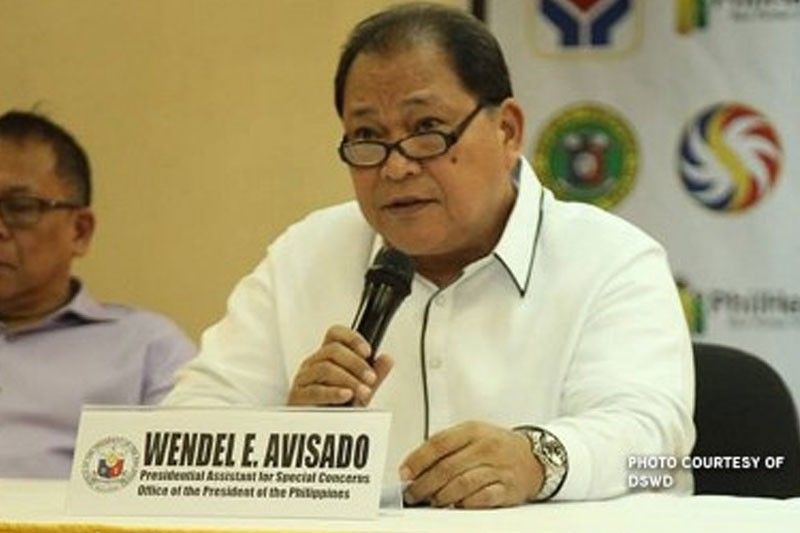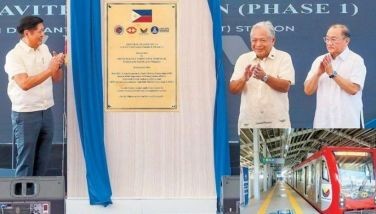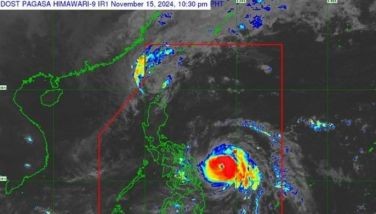‘No revenue sources, no stimulus package’

MANILA, Philippines — There can be no stimulus package without revenue sources, Malacañang said yesterday, after the House of Representatives passed a bill that seeks to allot P1.3 trillion to jumpstart the economy battered by the coronavirus disease 2019 (COVID-19) pandemic.
Presidential spokesman Harry Roque echoed the view of the finance department that there should be existing funding sources before a stimulus package can be implemented.
“I think the point of (Finance) Secretary (Carlos) Dominguez is all stimulus packages can be sourced from a supplemental budget, but we cannot have the budget without an additional source of revenue,” Roque said at a press briefing.
“So the Department of Finance is just making sure that any stimulus package that will become a law can be funded from existing sources, or at least the sources of funds have to be identified,” he added.
Late last month, Budget Secretary Wendel Avisado said there is no basis to seek a supplemental budget because the country does not have new revenue sources or excess tax collections.
Collections of the Bureau of Internal Revenue and the Bureau of Customs dropped in April as lockdown restrictions forced thousands of businesses to close shop. Their total collections totaled P527.41 billion in the first four months, lower by P179.37 billion than the amount collected in the same period last year.
Earlier this week, the House of Representatives approved on final reading the proposed Accelerated Recover and Investments Stimulus for the Economy of the Philippines or ARISE Philippines Act, which seeks to promote economic activity and assist sectors affected by the pandemic.
Supporters of the measure said the P1.3-trillion stimulus package would create infrastructure and jobs and help workers and small businesses.
Dominguez, however, said the government lacks excess revenues to finance the proposed stimulus package.
He noted that the Constitution requires the certification of excess funds and new revenue sources to support the passage of any supplemental budget.
The finance chief also warned that the passage of new spending laws without funding sources could jeopardize the country’s fiscal sustainability.
At the same briefing, Roque said the distribution of the second tranche of aid for sectors sidelined by the pandemic may start next week.
“I was with (Social Welfare) Secretary (Rolando) Bautista in Clark and he told me (that) by next week, they are ready to distribute. It will take them two days to distribute electronically and the rest with the assistance of the armed forces,” he added.
‘Better, responsive’ law
Speaker Alan Peter Cayetano yesterday assured the public that the House of Representatives will pass a “better and responsive” second Bayanihan to Heal as One law II that will institute mechanisms to improve the Social Amelioration Program (SAP) in the distributions of cash aid.
“Congress will be exercising its oversight functions to ensure that “the mistakes of the past will not be repeated. We want also to ensure that SAP will be given to all Filipinos who need it most,” Cayetano said in a statement sent to the media.
“We respect and acknowledge the tremendous work done by the departments involved, but our citizens cannot afford to wait that long. There must be a better way, and together we will find it,” he added.
The Taguig congressman expressed optimism that the second Bayanihan law will be better and more responsive, noting that the proposed measure will improve on what has been achieved so far.
On June 3, the House committee on the whole passed House Bill (HB) 6953, which seeks to address the adverse impact of the global COVID-19 pandemic to Philippine economy and society.
The Speaker reaffirmed the commitment of Congress to find solutions to prepare for challenges that the Filipinos will face as the country prepares for the new normal.
Under the HB 6953, there will be a provision of emergency subsidy for all affected Filipinos in need of emergency subsidy, such as low-income families, households with recently returned overseas Filipino workers, no-work-no-pay individuals such as freelancers and self-employed individuals and other families or individuals properly identified by the government as in need of emergency subsidy resulting from the enhanced community quarantine being implemented or previously implemented by the government. Delon Porcalla, Edu Punay
- Latest
- Trending






























